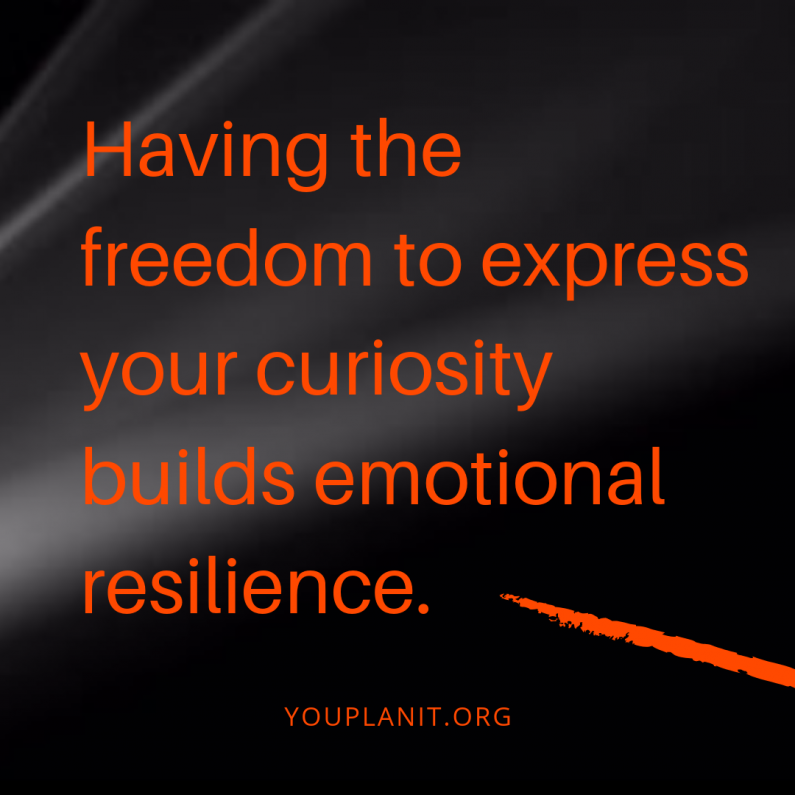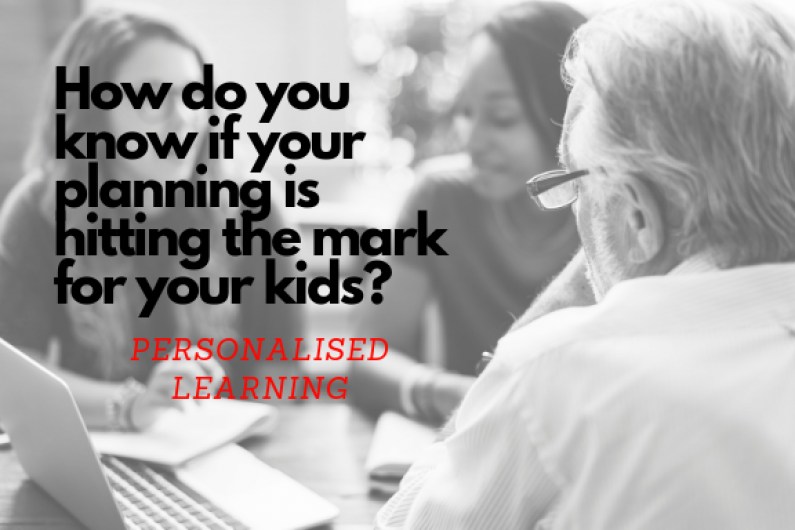
Is there something which is keeping our kids from asking questions that matter?
When you approach learning from the perspective of a driven student-curriculum and a prescribed learning approach you do run the risk of shutting kids down, or at the very least, direct their thinking towards an idea or concept which they may or may not be ready for.
However, if you approach learning from the perspective of following the curiosity of a student and allow this to be developed into meaningful content expressed through the tools of academic disciplines such as writing, speaking, technology, science, etc. you have a better chance of giving your students a platform to begin the discovery of who they are.
When our students repress themselves, that’s when the emotional influences interrupt learning. I am not suggesting that we create a ‘free-for-all’ go ‘fling-out-of-control’ environment where there are no restraints, we are still dealing with young people who need guidance, instruction, compassion, and understanding. What I am exploring is the possibility that by controlling what students learn, how they learn it and when they learn it, can create a false sense of value, awareness, and false self-image, therefore, hindering the student’s personal growth. Are we driving them in the wrong direction when we control the content, context, and outcome of a learning experience?
Are we keeping our kids from asking questions that matter?
Let’s take the path of authenticity and curiosity and discover where it might lead.
First of all, I’m under no illusion; any good idea can turn sour. Curiosity can go wrong! That’s why we have adults, right?
The beauty of curiosity is that it places anyone exploring it in a place of vulnerability. By this, I mean you no longer can hide under the shadow of a teacher’s idea or a group’s idea. Curiosity and authenticity create vulnerability. Your students may reveal something about themselves, which they may not want everyone to know. Students may also experience the internal conversations about themselves and shy away from being authentic because they don’t want the judgment of others they don’t want to feel stupid, or look bad. These are great opportunities to build self-confidence, self-awareness, and resilience. Of course, sensitivity and an awareness of the student's readiness are important as we guide these beautiful lives to expand their understanding of 'self'.
As mentors, teachers, and parents we need to be sensitive to the personal development of each student as they undergo these challenges. These challenges are real and must be respected. We don't want to change the way students feel about themselves but rather help them to find a deeper understanding of who they are.
Students will need to deal with the questions, “Can my idea withstand the scrutiny of peer pressure and the metal of school assessments? That’s something to be determined by the student’s level of self-awareness, courage, resilience, and self-confidence and having the ability to rely on teachers, parents, and mentors round them to be there for them with an attitude of openness and honesty.
Having the ability to be authentic and express curiosity builds emotional resilience.
So, how do you know when one is being genuinely authentic and curious or is imaging themselves upon something that has perceived value. Imaging oneself upon something or someone that has a perceived value happens all the time in most learning institutions where students don’t have a lot of say over what they learn.
However, if a student who comes from a background of a ‘restrained’ student-led learning environment and they start the journey of self-discovery through authenticity and curiosity, there is the danger that they start imagining what their personal authenticity might look like and attach themselves to something or someone that is a false image of what they really are!
Oh boy, it just got complicated.
So, is there a limit as to how far one dives into authenticity? Well, that’s something for you to work through with your students.
Authenticity is a gradual move to self-discovery of who you are, and curiosity can be a vehicle by which this discovery happens.
Let’s not give up on trying to move our students to a place of self-discovery from the moment they walk in the doors of our educational institutions through authentic and curious exploration.

05 May
How do you know if your planning makes sense for your kids?
Well, I don’t think you can!
This is partly because no one has ever defined what personalised learning looks like in real terms or come up with a collective agreement of how to plan, track, mark or report on it.
Why are my students driving me crazy? I’m up against power struggles every day and find myself exhausted just thinking about the next meeting talking about that kid who refuses to listen!